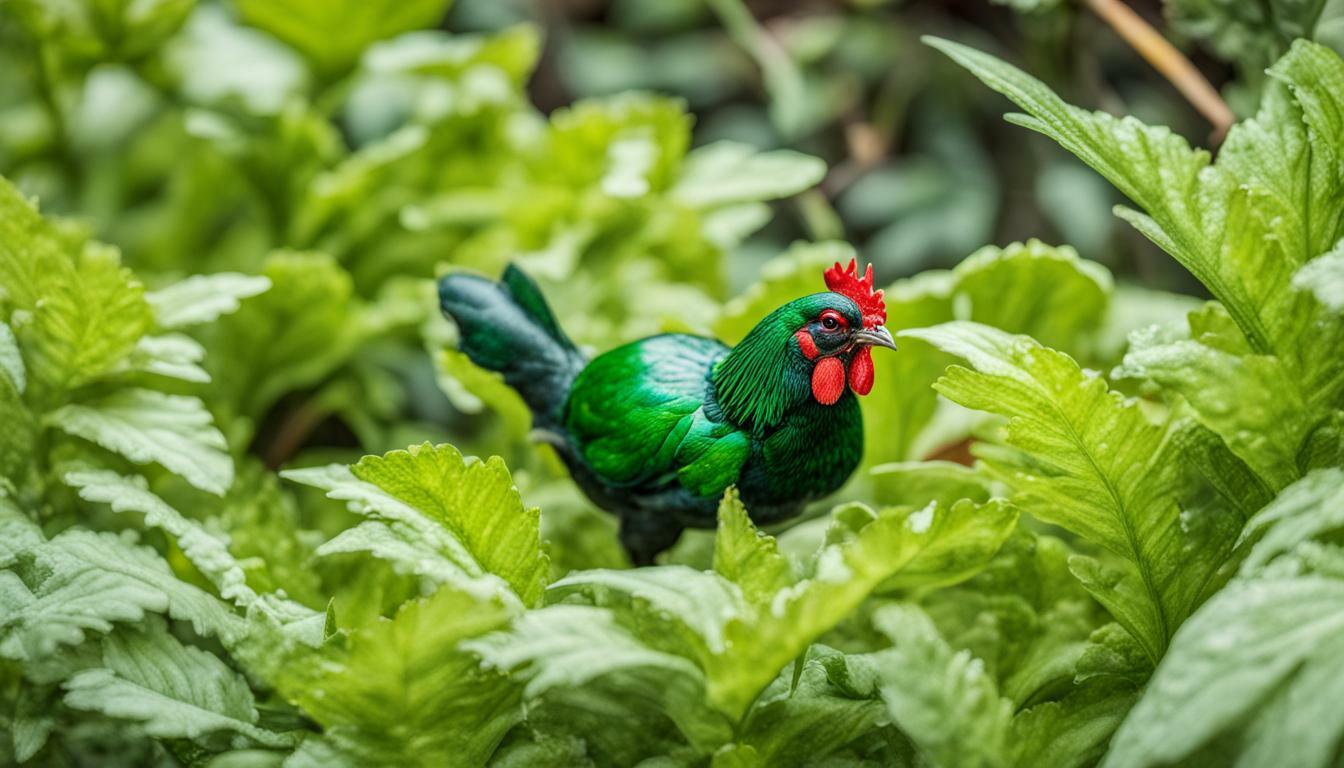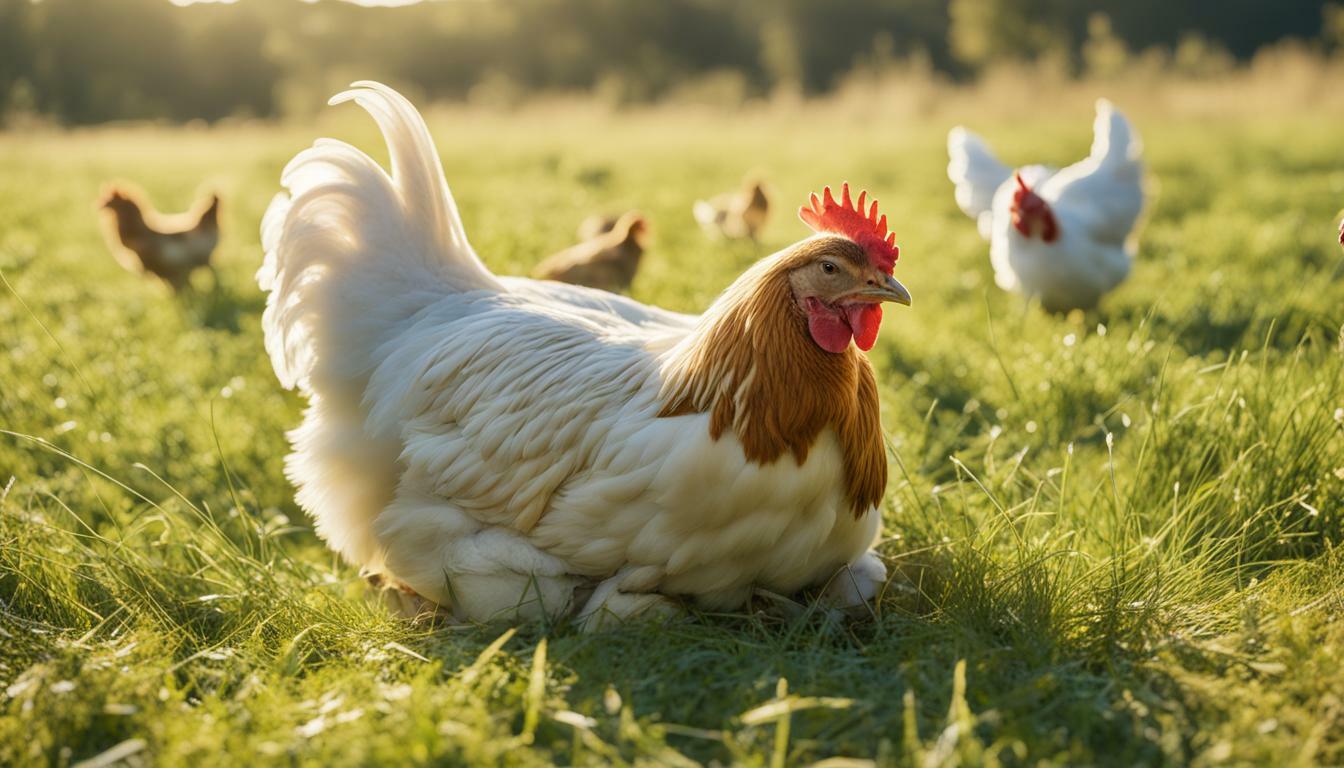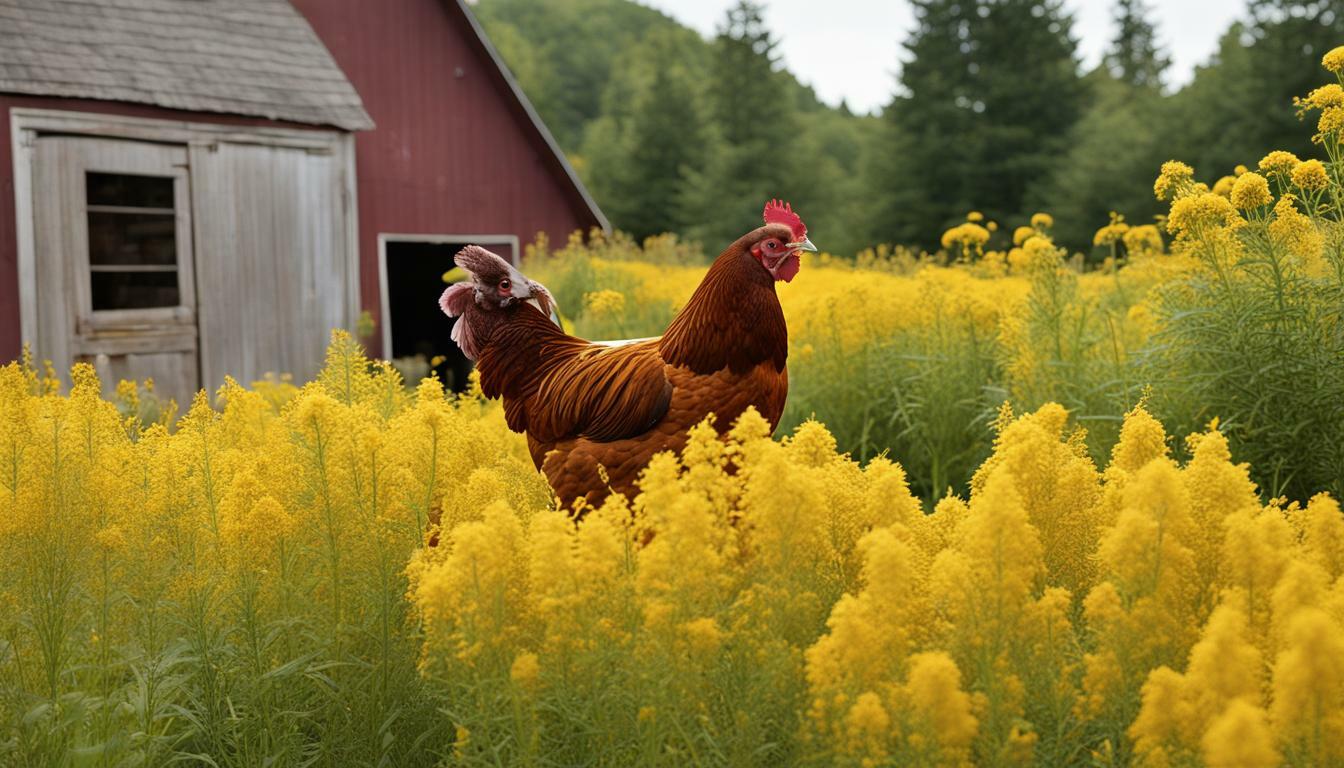Do Chickens Eat Japanese Beetles? Exploring Chicken Diets

Table of content:
- Do Chickens Like Eating Japanese Beetles?
- Are Chickens Effective for Controlling Japanese Beetles?
- Tips for Feeding Beetles to Chickens for Pest Control
- FAQ About Do Chickens Eat Japanese Beetles?
- What do chickens eat to get rid of Japanese beetles?
- Will chickens eat adult Japanese beetles?
- How effective are chickens at controlling Japanese beetles?
- Do chickens like to eat Japanese beetles?
- What is the best way to feed chickens Japanese beetles?
- Will chickens eat beneficial insects while hunting beetles?
- How many chickens do I need per square foot of garden for beetle control?
- What chicken breeds are best for eating Japanese beetles?
- An Integrated Pest Management Approach with Chickens
- Final Thoughts
Chickens can be very effective at controlling Japanese beetles naturally. Their keen eyesight and appetite for insects make them a great addition to the garden. But will chickens readily eat Japanese beetles? And what’s the best way to feed chickens beetles to maximize pest control? Read on to learn all about using chickens to combat this invasive pest.
Do Chickens Like Eating Japanese Beetles?
Chickens relish adult Japanese beetles, eagerly gobbling them up when given the opportunity. The beetles provide a tasty source of protein, fat, minerals like zinc and copper, and other nutrients chickens need in their diet.
Chickens use their sharp eyesight to spot the metallic green beetles on plants. They quickly snap them up with their beaks. Then the beetles are crushed with their gizzards and digested.
Both laying hens and meat birds enjoy feasting on the beetles. Chickens also like eating Japanese beetle grubs living in the soil. They will enthusiastically scratch around garden beds looking for these fat, white curl grubs.
While chickens seem to enjoy dining on Japanese beetles, they will not eat enough to fully eliminate an infestation on their own. Their pest control impact must be supplemented through other techniques. But keeping chickens can significantly reduce beetle populations and damage when integrated with other methods.
Are Chickens Effective for Controlling Japanese Beetles?
Research shows chickens can help limit Japanese beetle damage when allowed to forage in infested areas. But the extent of their pest control benefits depends on how they are managed.
Several factors influence the beetle-eating effectiveness of chickens:
- Number of chickens: More chickens results in greater pest control. The beetle consumption per bird is limited.
- Time spent foraging: Chickens that spend most of the day roaming and foraging eat more beetles than confined chickens.
- Access to infested plants: Chickens need to be able to access and inspect beetle-infested plants to provide meaningful control.
- Age of chickens: Younger chickens are more active foragers and consume more insects.
- Breed: Active foraging chicken breeds (like Australorps, Orpingtons, Cochins) offer the most pest control benefits.
Studies show chickens may eat 50-75% of adult Japanese beetles present when actively foraging among plants during peak beetle emergence. They are less effective at controlling larger, established infestations, but still provide significant help in reducing damage.
Tips for Feeding Beetles to Chickens for Pest Control
If your garden is being overwhelmed by Japanese beetles, here are some tips to maximize the pest control benefits of chickens:
- Allow chickens to freely range in or near the garden for most of the day during summer months when beetles are active. They will naturally hunt for the tasty beetles.
- Use chicken tractors or movable coops to concentrate foraging in heavily infested hot spots for a couple weeks at a time.
- Hand pick Japanese beetles off plants in early morning when they are sluggish. Toss them directly to the eager chickens for a protein-packed treat!
- Put up Japanese beetle traps near chicken runs. Empty trapped beetles into trays or tubs for chickens to feast on.
- Check plants diligently for egg clusters and larvae. Till infested soil for chickens to hunt grubs.
- Maintain habitat diversity to support beetle-hunting. Chickens thrive with plants, trees, and brushy areas that attract insects.
- Supplement active foraging chickens with high protein feeds. This fuels their beetle-eating and supports egg/meat production.
By unleashing your flock on Japanese beetle infestations, you can take advantage of the chickens’ natural behaviors to achieve free pest control. But remember to provide supplemental feed and shelter even as the chickens help control the beetle hordes.
FAQ About Do Chickens Eat Japanese Beetles?
Many poultry keepers are curious about the best practices for getting chickens to eat Japanese beetles. Here are answers to some of the most common questions:
What do chickens eat to get rid of Japanese beetles?
Chickens will naturally hunt down and eat all life stages of Japanese beetles they encounter while foraging, including adults, grubs in the soil, and larvae on plants. You don’t need to feed chickens anything special to motivate them to devour these tasty insects.
Will chickens eat adult Japanese beetles?
Yes, chickens will readily eat both male and female adult Japanese beetles. The beetles provide a good source of protein and nutrients for chickens.
How effective are chickens at controlling Japanese beetles?
Free-ranging chickens can eat 50-75% of adult beetles in an area. But chickens alone can’t fully eliminate large infestations. Use them as part of an integrated pest management plan.
Do chickens like to eat Japanese beetles?
Chickens love eating the adult beetles, considered a tasty treat! They will actively hunt for them while foraging.
What is the best way to feed chickens Japanese beetles?
Letting chickens freely forage among infested plants is the best way to maximize beetle consumption. You can also hand pick beetles and toss them directly to the flock.
Will chickens eat beneficial insects while hunting beetles?
Chickens are omnivores and not picky. They may eat some beneficials like ladybugs while feasting on beetles. But overall impact on beneficial insects is minimal.
How many chickens do I need per square foot of garden for beetle control?
There is no set rule, but some experts recommend at least 3-5 chickens for every 1000 square feet of garden space with beetle problems.
What chicken breeds are best for eating Japanese beetles?
Heritage breed chickens and birds with an active foraging instinct perform beetle patrol best. Some top breeds are Rhode Island Reds, Australorps, Orpingtons, Cochins, and Hamburg chickens.
An Integrated Pest Management Approach with Chickens
While chickens can make a significant dent in a Japanese beetle invasion, they should be part of a broader integrated pest management plan. Here are some additional tactics to use along with free-ranging chickens:
- Hand pick beetles off plants in the morning and drop them into soapy water.
- Use pheromone or floral lure traps to attract and contain beetles.
- Apply parasitic nematodes to soil to infect grubs.
- Release or conserve natural predators like birds, ground beetles, and parasitic wasps.
- Use protective row covers over plants during peak activity periods.
- Plant beetle-resistant plant varieties.
- Maintain healthy garden soil and biodiversity to support natural controls.
An IPM approach combining multiple tactics maximizes impact on Japanese beetle populations while minimizing any negative effects.
Final Thoughts
By allowing your flock access to plants and areas with beetle issues, the chickens will happily feast on the insects while also providing pest control benefits. Combine their foraging behaviors with other IPM strategies for the best control results. Maintaining a backyard flock provides free beetle patrol along with supplying fresh eggs and meat. So let your chickens run wild in the garden and they’ll thank you with fewer plant-munching beetles!
Welcome. I’m Adreena Shanum, the proud owner of this website, and I am incredibly passionate about animals, especially poultry. I founded adreenapets.com as a labor of love, stemming from my desire to share my knowledge and experiences with poultry enthusiasts worldwide.




